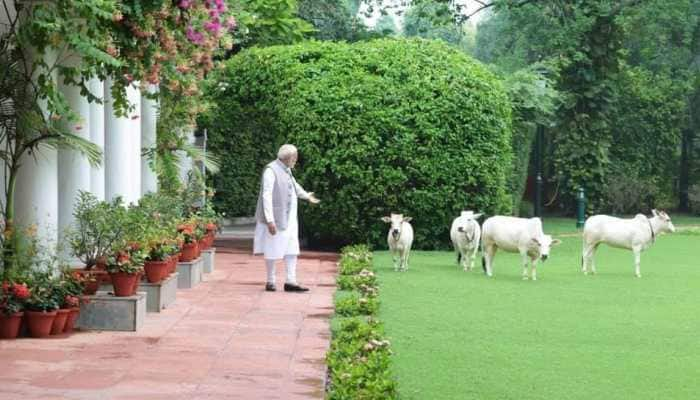Delhi likely to record coldest day of December on Monday in last 119 years: IMD
Delhi has been gripped in a numbing cold for the past several weeks and the mean temperatures are lower here because of fog and no sunshine. From December 31 onwards, rain is likely in the capital city and its adjoining areas such as Noida, Gurugram, Ghaziabad and Faridabad.
Trending Photos
The national capital is likely to record the coldest day on Monday for the month of December in the last 119 years, according to the India Meteorological Department (IMD). The day temperature has been unusually following the coldest trend with Safdarjung recording a temperature of 9.4 degree Celsius at 2.30 pm.
Delhi has been gripped in a numbing cold for the past several weeks and the mean temperatures are lower here because of fog and no sunshine. From December 31 onwards, rain is likely in the capital city and its adjoining areas such as Noida, Gurugram, Ghaziabad and Faridabad. This weather phenomenon is likely to continue till January 3, predicted the weather forecast agency. A significant increase in wind speed is expected over Delhi-NCR from the evening of December 31 under the influence of approaching western disturbance and easterly winds in the lower level. A hailstorm is also expected on January 1-2, 2020.
Earlier, the IMD had said that the national capital is likely to witness the second coldest December of this century as the mean maximum temperature (MMT) till December 26 was recorded at 19.85 degrees. It had said that if the mean maximum temperature dips to 19.15 degrees by December 31 then it will be the second coldest December since 1901. Prior to this, the mean maximum temperature was recorded at 17.3 degrees in 1997. The mean maximum temperature recorded for December month from 1901 to 2018 has dipped only four years, 1919, 1929, 1961 and 1997, to below 20 degrees. In 1919 and 1929 the mean maximum temperature was recorded at 19.8 degrees, and in 1961 it was 20 degrees.
The national capital continued to shiver due to cold wave conditions on December 29, with the minimum temperature recorded at 2 degrees Celsius. On Saturday, the IMD issued a `red` warning for the national capital as cold wave conditions continued unabated in the region. The red colour denotes extreme weather conditions.
Dense fog and eventual poor visibility have caused flight delays and cancellations across north India in the past few days. A thick blanket of fog resulting in poor visibility has affected the operation of over 500 flights, Delhi airport website said on Monday. While five flights have been cancelled, 21 others have been diverted due to low-visibility in the national capital, said an ANI report.
Private airlines IndiGo and Vistara on Monday issued a travel advisory for their passengers saying flights to and from the national capital have been impacted due to bad weather and poor visibility. In a tweet, IndiGo said: "#6ETravelAdvisory: Due to poor visibility in #Delhi, our flights are impacted. Do keep a track of your flight status." Vistara also said that its flights to and from the national capital have been delayed affecting its other flights too. "Due to dense fog and poor visibility in Delhi, arrivals/departures from Delhi are delayed with consequential impact across the network," it said.
Earlier on Monday, budget airline SpiceJet also asked its passengers, scheduled to travel to and from Delhi, to keep a track of their flight status. "Due to bad weather at Delhi (DEL), all departures/arrivals and their consequential flights might get affected. Passengers are requested to keep a check on their flight status," the airline tweeted. Delhi's IGI airport authorities had earlier warned that flight departures may be impacted if visibility dropped below 125 meters.
The Director of All India Institute of Medical Sciences (AIIMS) Dr Randeep Guleria on Monday said that Delhi is witnessing more chill than hilly areas and OPD rush had increased by 20 per cent with people suffering from different respiratory ailments. "Because of the cold weather, there is a rise of 15-20 per cent in the number of patients in OPD. Bronchitis cases go up. Heart patients also face risks. If the healthy people do not take care of themselves, they may face a condition called hypothermia which results in abnormally low body temperatures," Dr Guleria told ANI.
Live Tv







)
)
)
)
)
)
)
)
)
)
